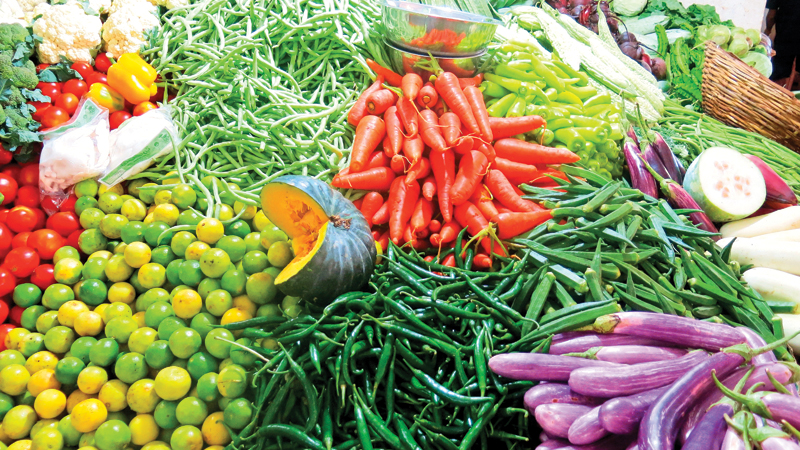- Hoarders face dilemma: rot or release?
- Intense discussions between Trade, Agriculture Ministries
- Rains the chief cause for price surge
Trade, Commerce and Food Security Ministry Secretary Priyanka Athapaththu yesterday assured that the ongoing crisis of soaring vegetable prices would be resolved by the middle of next month.
He said that the stronghold of middlemen who have been manipulating prices with hoarded vegetables, such as carrots and beans, will no longer be a tool for unjustified profit. The middle-men will be compelled to release their stocks to Dedicated Economic Centres (DECs) at lowered rates, he said.
The Ministry is set to implement measures for a tighter grip on vegetable pricing from now on to ensure fairness and stability in the market. Athapaththu said they have discussed with the Agriculture Ministry and other stakeholders on issues related to vegetable distribution, transport, farming, marketing, storage and preservation and other associated concerns. Post-Harvest Losses (PHLs), which lead to an almost 40 percent wastage of harvests, were also discussed. Steps are being taken to enhance the availability of all vegetables in the market, he said. He said this in response to our inquiry about the situation of consumers dealing with the high costs of vegetables, which however seemed to have shown a significant decline since yesterday.
“They cannot keep the hoarded vegetables indefinitely. People have virtually stopped buying the overpriced vegetables in the market. If they do not release them, they will rot,” he said.
The prices of vegetables went up mainly because of the damage caused to the crops by recent rains, he said.
“One can observe a surplus of undersized carrots flooding the market currently, as certain farmers in Nuwara Eliya prematurely harvested them with the intention of selling them at exorbitant prices,” he remarked.
“They were actually scheduled for harvesting next month.”
In response to inquiries about the situation of traders acquiring vegetables from suppliers at the DECs, the chairmen of these centres revealed that the number of wholesale buyers and average consumers has significantly dwindled over the past two weeks. This decline is attributed to the unprecedented surge in vegetable prices.
Sunil Seneviratna, Chairman of the Thambuttegama DEC, highlighted a significant decline in vegetable prices within their centre, attributing the decrease to a substantial drop in demand. Seneviratna said that, in addition to adverse weather conditions causing damage to numerous vegetable farms, there have been challenges in farmers obtaining high-yielding seeds, contributing to a shortage in harvest. Seneviratna emphasized the importance of addressing seed availability to stabilize the market and ensure a more abundant harvest. He said that providing farmers with high-quality local big onion seeds could have led to a substantial increase in big onion yields, potentially averting the recent surge in big onion prices.
Traders at DECs denied that they had artificially imposed VAT on vegetables, as claimed in certain quarters. VAT is not imposed on these essential items and in any case, only business concerns with an annual turnover of Rs. 60 million or more have to pay VAT.






